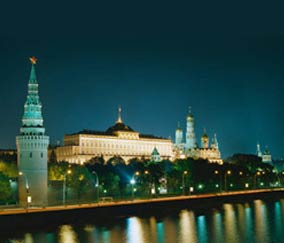Elections are over...what will the future bring
 Today Russia can certainly be characterized as one of the most auspicious countries in the world as far as foreign investments go.
Today Russia can certainly be characterized as one of the most auspicious countries in the world as far as foreign investments go.

One can undoubtedly claim that today's situation in the country is definitely stable. More so, society has clearly hinted at the formation of the new bipartisan system in the country. A system where neither a candidate from oligarchs nor those who do not attribute themselves to neither social niche (the so-called marginal candidates) will be able to run for presidency.
Weren't Khakamada, Glasyev, Malishkin, and Mironov all marginal candidates to run for the country's highest post after all? The latter two candidates can easily be related to their strong rival “Against All.” One thing remains unclear: why would the Council Speaker, who is already included in the President's team, participate in the campaign in the first place? As far Khakamada and Glasyev are concerned, they did not drift far apart from each other. Both of them deserve a title of political figures of the passing epoch of those who run for presidency not from any political party, but on their own.
In reality, neither one of them had been supported by a strong and respected political force, except perhaps a few runaway oligarchs. Khakamada failed to win November's (single member constituency) elections to the State Duma. What did she expect from presidential elections? Even “Soyuz Pravih Sil “SPS” (Union of the Rightists), of which this half-Japanese used to be the co-leader, has denied her a wish to show off in front of multiple TV cameras.
Everyone is aware of Khakamada's wealthy sponsor. It can be stated with an absolute assurance that her main task was not to win the elections but to merely bite Vladimir Putin. The bite had to be such that it could later be published and replicated in numerous western media sources.
Glasyev did not differ much from his former colleague. Having built its entire campaign on scandals evolving around his “Rodina” political party, trying to register another political movement with identical name for himself, denying his removal from the post of the party's leader, Glasyev has made a ruthless mistake: Russia has gone weary to get into the same trap, after having been lured into it back in 1991 after electing Boris Yeltsin.
He shouldn't have lied to the people either. After making the news of his personal large investments in the campaign, Glasyev could not explain how he had acquired the means in the first place. At any rate, every polling center provided people with Glasyev's financial declaration, final sum of which did not match the one of the elections fund. Doctor of Economics should not have thought so little of its people. Russians haven’t gone completely insane and are still capable of doing simple arithmetic.
Examples of these two politicians allow us to draw one of the most important conclusions of Vladimir Putin's four-year reign: Russia has finally freed itself from oligarch dependency. Basically, the country has ceased being a dormitory for those who happened to be in a waiting room of the Russian highest authoritative apparatus in the early nineties. Today, any new attempts of the oligarch's to influence the country from London, Tel-Aviv or other places will be condemned. There exist some thoughtful politicians in Russia; however, there is no one who fully trusts them.
Another meaningful result of the elections is such that KPRF (Communist party) has confirmed its leading position among the rest of the existing political parties across the nation. Perhaps, its candidate could have acquired even more votes if the party leaders had stopped leaning against an aged team of pensioners in its own media sources and also if it had used bright ideas instead of its nonsensical howling.
Nevertheless, even such poor election campaign allowed the party to assure its position as the strong and still rather influential force in our society. Obviously, today KPRF faces another challenge: to elect its new leader.
In any case, Russia has already made its choice for the next four years. The country's leader has already been elected. Since Vladimir Putin remains at power for the second term, the rules of the political game remain pretty clear: president controls the government, constitutional majority of the lower chamber as well as the upper chamber. In my opinion, everything is clear. Unique conditions are being created which aim at stimulating future growth of a strong opposition. Will KPRF use this chance?
Subscribe to Pravda.Ru Telegram channel, Facebook, RSS!





